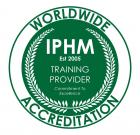The Ageing Minefield
27th Nov 2017
Many people expect to decline physically and mentally as a normal part of getting old. They believe that ageing is out of their control and they have to give in to illness, body aches, failing memory and slowing down.
The Collins 21st Century Edition dictionary defines 'ageing' in two ways. One is growing old. The other is becoming older. Just a simple difference in words can make an enormous difference to our feelings about 'ageing'. We don't mind becoming older, but the thought of growing old can be disturbing. Of course ageing is a process of getting older, but this doesn't mean that we have to think old, unhealthy, creaking bones, and loads of medication.
One of my students wanted to learn more about nutrition and brain health, to help her 92-year old mother to maintain her agile mind, mobility and quality of life. For privacy reasons, I have changed her mother’s name to Elizabeth in this article.
Elizabeth used to take 15 pills for various conditions, plus medication for the side effects of the pills. Over the years, with a healthy diet and exercise, her health improved, she cured her Type 2 Diabetes, and her pills eventually reduced to two. Elizabeth at 90 was doing really well.
Sadly she developed Alzheimer's, but despite this new condition, she was coping well, doing her own meals, reading the newspapers, whizzing through crosswords, walking well, and the dementia was stabilising.
Then she had a fall, a hip fracture, an operation, and a urinary infection set up by the catheter she had to use until she could start walking. She was in hospital for twelve weeks. Although she recovered within three weeks, the extra nine weeks of waiting for a temporary home care package worked against her. She began to develop complications. In addition to codeine for the expected hip pain from her operation, the hospital gradually prescribed another 8 pills for the following conditions, increasing her daily pill intake to 10:
- Chest infection which became pneumonia.
- Swollen legs, due to lack of moving around.
- Second urinary infection.
- Restless legs.
- Constipation as a result of the medication and poor nutrition.
- Diabetes 2, which re-appeared, possibly due to a high-carb diet and no exercise.
- Osteoporosis, only prescribed as a preventative measure in case of future falls.
- Medication to protect the stomach lining from all the pills.
Elizabeth's daughter was disappointed that the diabetes had returned. Having worked with her mother for so many years in providing a protein-rich, wholegrain diet, she was shocked by the hospital's high-carb 'diabetic diet' of sugary cereal and white toast for breakfast, a little protein and plenty of potatoes for lunch, sandwiches, jelly and ice cream for supper, plus tea and coffee with sugar throughout the day.
The osteoporosis pill was a concern. Elizabeth had to remain upright for 30 minutes after swallowing it, otherwise it could burn her oesophagus. She could easily forget to do this. As she had not fallen until age 92, and only sustained a small hip fracture, one wonders if an osteoporosis pill, with the risk of a burnt oesophagus was really necessary.
Elizabeth usually sleeps heavily, but as the hospital was noisy during the night, she couldn't sleep. She was given an antidepressant muscle relaxant for restless legs. It exacerbated her dementia symptoms of confusion, and the side effect of drowsiness made her sleep by day instead of getting walking exercise, so her mobility deteriorated.
Although not incontinent, she was made to wear incontinence pants, as she had difficulty getting to the bathroom which was some distance through her ward and down a long corridor, moving slowly on her recently operated hip. She rarely got to the bathroom in time, and became dependent on the incontinence pants.
The attention Elizabeth received from ambulance to hospital to rehabilitation was excellent, but the hospitalisation itself deteriorated her drastically.
She returned home with two bags of medication, grey skin, a lifeless body, mentally vegetative, depressed, confused, and incontinent. It was clear that she had been over-medicated, poorly nourished, given little walking practice, no mental stimulation, and her mind, body, digestive system and urinary tract were just not functioning.
After four weeks at home, Elizabeth came back to life. All that was needed was a sensible diet, reduction in medication, and moving around the house doing things - proof that a poor diet, over-medication and lack of mental and physical stimulation can reduce a person's morale, motivation and well-being.
If Elizabeth at 92 can do it, we can all do it. Whatever our age or state of health, we can make an effort to get our diet and lifestyle in tip-top condition, go easy on the medication, and always keep motivated to maintain our health and well-being into our later years. Let's start right now!
Copyright © 2017 Brenda Martin





